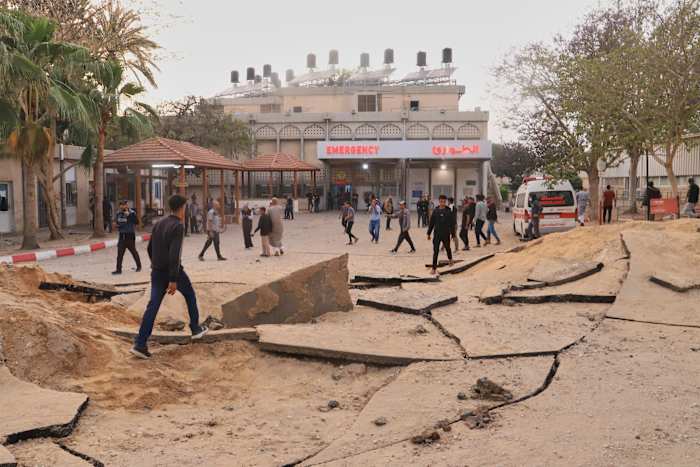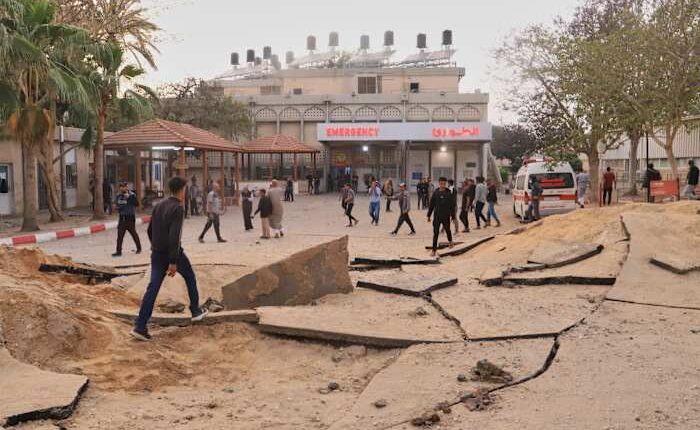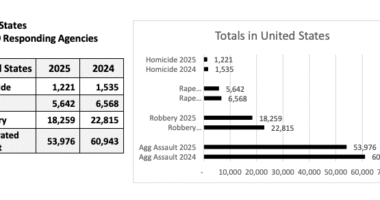
TANZANIA – The top United Nations humanitarian official criticized Israel on Tuesday for imposing harsh conditions on Palestinians, leading to the risk of famine, during the conflict in Gaza. This strong condemnation came from Tom Fletcher, the head of the U.N. Office for the Coordination of Humanitarian Affairs, in a briefing to the Security Council. He expressed concern about the dire situation in Gaza, where Israel has prevented humanitarian aid from entering for over 10 weeks, prompting Fletcher to urge the council to take immediate action to prevent a potential humanitarian catastrophe, which Israel denies is occurring.
Fletcher emphasized the urgent need for action to address the ongoing crisis, calling on all involved parties to consider their actions in the context of future generations who will question what was done to prevent the atrocities in Gaza. He highlighted the gravity of the situation, describing it as a task that all individuals must fulfill to avoid being judged by history for inaction in the face of such suffering.
In his address, Fletcher stressed the importance of taking decisive steps to alleviate the suffering of the Palestinian population in Gaza and to prevent a humanitarian crisis from escalating further. He underscored the moral responsibility that the international community holds in ensuring the protection and well-being of vulnerable populations, urging immediate intervention to avert a potential humanitarian disaster and mitigate the severe impact on innocent civilians.
In response to Fletcher’s remarks, the Israeli mission to the U.N. said that “Israel will not accept a humanitarian mechanism that props up the Hamas terror organization that butchered our people in their homes and communities.” Before the blockade, the U.N. and other international aid agencies handled moving aid into the enclave.
The U.N. World Food Program’s director for Gaza, Antoine Renard, told The Associated Press that a quarter of Gaza’s population is at risk of famine. That’s despite all the food needed to feed the territory’s population sitting in warehouses in Israel, Egypt, and Jordan — and most of it is not even 25 miles (40 kilometers) away, he said.
Renard said WFP warehouses in Gaza are empty, and the agency has gone from providing meals for 1 million people at the end of April to producing only 250,000 meals daily. The meals they can serve are “meaningless, compared to people’s requirements,” he said.
“Soon, we’re going to speak about the fact that people don’t even have access to a meal,” Renard warned. “Is that where we need to go to actually raise the alarm? It’s now that we need to act.”
The warnings come after food security experts said Monday that Gaza will likely fall into famine if Israel doesn’t lift its blockade and stop its military campaign. Nearly half a million Palestinians are facing possible starvation, living in “catastrophic” levels of hunger, and 1 million others can barely get enough food, according to findings by the Integrated Food Security Phase Classification, a leading international authority on the severity of hunger crises. In January 2024, the International Court of Justice, the U.N.’s top court, ordered Israel to do all it can to prevent death, destruction, and any acts of genocide in Gaza.
The alarm comes after the AP obtained a proposal from a newly created group backed by the U.S., the Gaza Humanitarian Foundation, to implement a new aid distribution system based on plans similar to those designed by Israel. The U.N. and aid groups have rejected Israel’s moves to control aid distribution.
“It is a cynical sideshow. A deliberate distraction. A fig leaf for further violence and displacement,” Fletcher said Tuesday about the proposal.
When asked Tuesday whether the U.S. supports aid quickly entering Gaza, a spokesperson for the State Department said he would not speak for the foundation, while repeating Israeli rhetoric that Hamas “bears responsibility” for the humanitarian conditions in Gaza. It’s a claim that aid officials have continuously disputed.
“I will reiterate that we are supportive of creative solutions to get aid in there, but also in a way that the aid is not falling into the hands of Hamas, that it actually reaches the people that need it,” deputy spokesman Tommy Pigott told reporters.
Copyright 2025 The Associated Press. All rights reserved. This material may not be published, broadcast, rewritten or redistributed without permission.

















